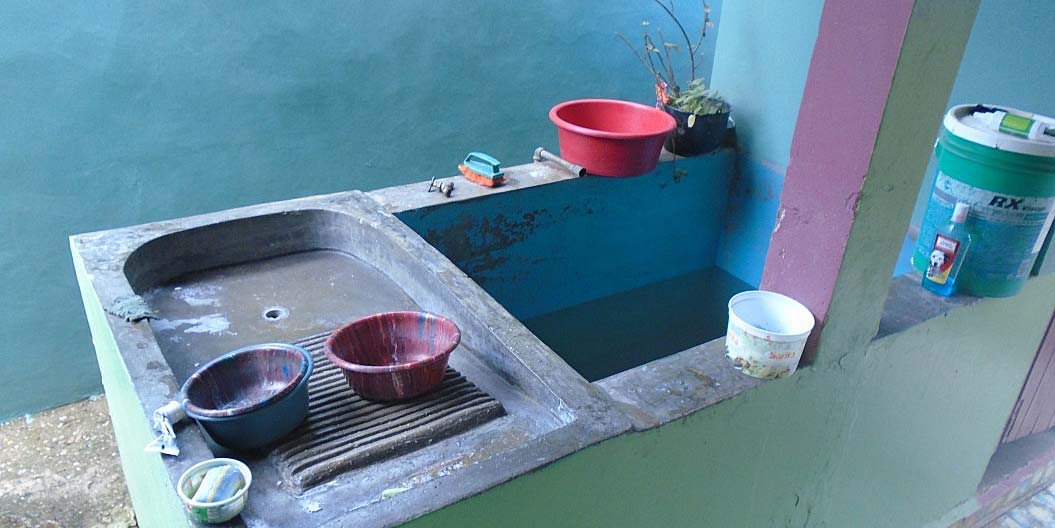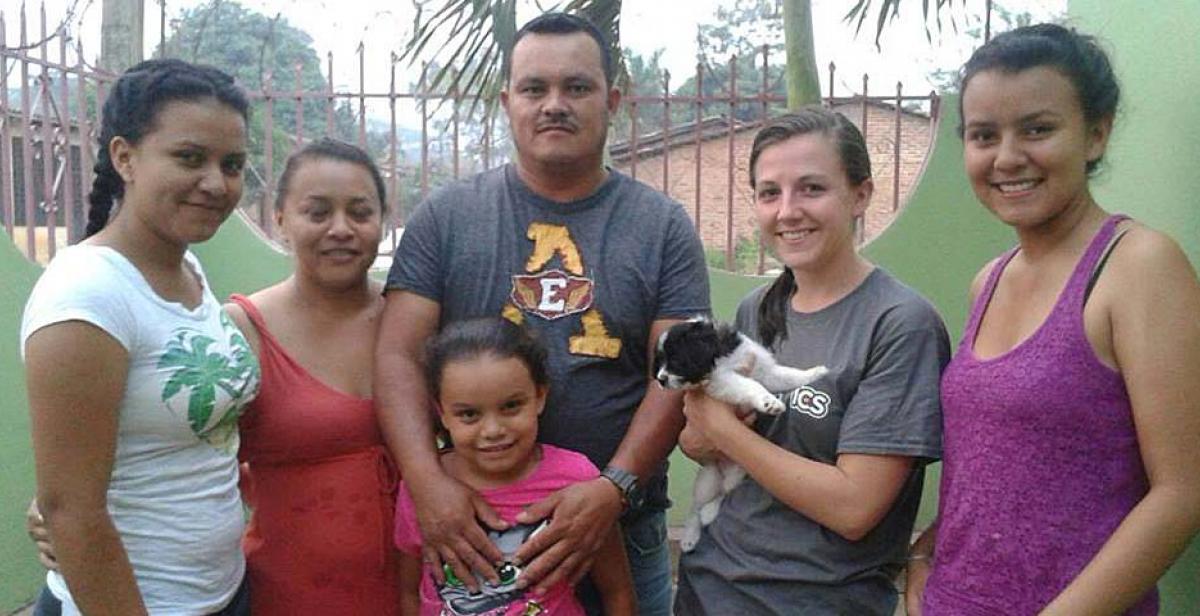You can visit a country and get all sorts of different experiences from it - you can visit the famous touristy places and buy souvenirs, you can go hiking up the highest mountain, and you can explore the streets of an old town. But what ICS can offer is a rare experience: to get under the skin of a culture and learn about it from the inside; the bits that the guide books don’t teach you.
In Catacamas, the British volunteers have been given that exact opportunity, as we have all been assigned families to stay with for the whole 10 weeks of our placement with local organisation PREDISAN.
I was excited about my homestay, but a bit apprehensive about fitting into a family’s life. However the welcome that awaited me showed me I needn’t have worried; I knew everything would be fine when my family’s grandma gave me a huge hug, her eyes sparkling with excitement as she said ‘you’re my new granddaughter!’. My Honduran mum now tells her friends that she has four daughters instead of the three she had before, I am included in all activities as a member of the family, and I am followed everywhere round the house by a puppy and a seven year old.
Every day in my new home is interesting and Honduras definitely knows how to keep you on your toes. I’ve learnt how to have a bucket shower with half a bucket of water; water is scarce and only comes out the tap once or twice a week, and although it was a challenge at first as I tried to awkwardly throw cups of water over myself, I now appreciate my daily trip to the pila (a big water butt) to fill up my bucket. I also learnt the hard way not to get attached to chickens you find wandering around the garden; after having named and bonded with our new ‘pet’ Ginger, the family informed me she was tomorrow’s lunch, which was one moment I was thankful to be vegetarian.

I am learning how to break a sweat hand-washing clothes; I caused much amusement the first time the family watched my attempt at using the lavador (like a washboard), but now my clothes actually seem cleaner after I wash them. I always used to see brushing my teeth as a private event to be undertaken in the bathroom, but due to all water activities being conducted at the only water source, the pila, I am enjoying participating in the social activity that is cleaning your teeth outside the house - alongside people doing the dishes, washing their hair or walking down the street.
The three families with whom the British volunteers stay say how much they enjoy having us and especially having foreigners in the house, as it’s a great opportunity for everyone to learn things from each other’s cultures. I’ve enjoyed the nights we’ve sat outside with family friends, them questioning me about how we live ‘over there’, practicing their English and peering with fascination at a £5 note. They also love asking what I like so much about their culture, how Honduras comes across to an outsider and what made British people want to come here and support them. But their favourite topic of conversation is laughing about how much I like beans, and how I never get tired of asking for baleadas (a traditional Honduran food).
Living in homestays can have its logistical challenges, especially in trying to coordinate the group and the movements of different families. But for the volunteers to feel instantly part of something and have that rooted connection to the community from day one, it makes such a difference to the transition into a new culture, which at times can be overwhelming.
Even though I’ve been in Honduras for a while now, I’m still constantly learning from everything and everyone around me. This being the first time that Progressio in Honduras has done homestays for the whole cycle, it’s given me yet another unforgettable opportunity to experience something special that I’d probably never have experienced otherwise.
Written by ICS Group Leader Ellie Wason



